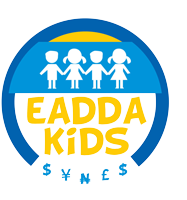As an adult, I believe, setting goals is no longer strange to you. If nothing at all, you planned to graduate from school, get a business or a job and you are at it already. Some of your goals have been achieved while some are still ongoing. Even if you are not used to goals you need to start now, especially for the kids.
After giving your child an allowance the next thing you need to ensure they get right is goal setting. Setting goals help you measure your progress, as well as your child’s. You should set goals that you want to see your child achieve. The goals you now decide on depends in part on the age of your child and what your child already knows. As you work with your child on this you might have to change your personal goals as you go along too because you will learn a lot along the way.
You can set any goal you want. When your child completes an age category, test his money knowledge to make sure that he has mastered the goals you’ve set. To do this you can –
-
Ask him or her questions – See whether your child’s answers show that he or she has achieved the different goals.
-
Watch him or her in action – Doing is even more powerful than saying. Put your child to the test to see if he or she will succeed.
Goals for Kids – 6 to 10 years
Kids starting primary school are outgrowing the myths of early childhood – the tooth fairy, Santa Claus, etc – are going out of fashion. We live in a world where our little ones are contending with technology and all sorts of advancement. These days kids are growing so fast that I believe it’s time to start teaching them the realities of money.
If your child falls in this age category (essentially primary school age), you want to be sure that he or she masters certain basic money concepts:
-
Identifying money – Make sure that your child knows the difference between kobo and Naira (for Nigerians) or as appropriate for the country you live in.
-
Making change – Make sure that your child knows how to present enough money to cover a purchase and to count her change without being cheated.
-
Being responsible for money – If your child loses a Naira note that was in his or her pocket, let him or her realise the loss. Don’t replace the money. This will teach him or her to be more careful in carrying money.
-
Understanding that things cost money – From a bar of chocolate or pringles that he eyes at the supermarket to the cartoon channels on TV and to the new car she wishes you are driving, your child must know that nothing comes free. Somebody has just paid for it.
-
Handling an allowance – Make sure that your child learns to live with the allowance he or she is given and that it is used to meet any expectations for it that you might have set. For example, this may include a modest savings plan to pay for things she wants in the future.
– Gbonjubola Sanni

0 Comments